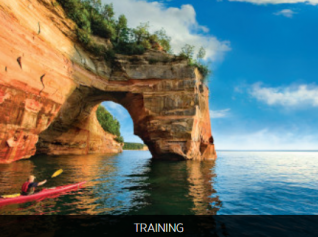TravelMole Guest Comment: The future of tourism, or is it?
Adrian Lawes, publisher of CD-Traveller, delves into the Government’s new tourism policy and finds it’s more than just changing the public holidays…
"This morning the Dept for Culture and Oddities issued its 52-page document on its plans for tourism. These will affect all of us in the industry as well as the holidaymaker. And in a document that offers little in the summary or the press release, it’s in the guts of it that you find the potential for substantial change.
For a start it means less of all of our taxes will be used, in time, to support tourism since the government wants those involved in tourism to largely pay for it. The recently announced £100 million fund where big companies have invested to be match funded by the government is the start.
Secondly, they want more of us to holiday at home since we have a population that likes to go abroad in proportionately greater numbers than other nations. That would retain more money in the UK economy and create jobs. And jobs are very important much more so than in some industries because unlike, say, banking or business services, you can’t ‘export’ these jobs to other countries to save money. Most of the jobs created in tourism have to stay in our countries in order to deliver the product.
They want our home attractions and destinations to find ways to extend the periods when we are likely to visit them as this would have the same effect so, as part of it, they are considering moving the May 1st bank holiday to St George’s Day in England, St David’s Day in Wales (if the Welsh Assembly agrees) or to October, say Trafalgar Day so that the ‘holiday’ season lasts longer. The morning newspapers and TV stations have tended to concentrate just on this aspect of things.
Improving the information on those brown signs we see on motorways and main roads so that we have better information about attractions is another suggestion as well as an investigation into road and rail maintenance so that it doesn’t have such an impact in the ability of us to move around in peak tourist times. Like weekends. Whether this proposal gets anywhere, I’ll only believe when I see it.
Removing its quality assessment scheme for accommodation had already been mooted so this was nothing new. The government believes that some websites which provide customer comment offer a better and more easily understood service. There is no government sponsored star system for consumers to compare in some countries like Germany and USA so why here? And some research suggests we don’t take much notice of it anyway.
There are plans to speed up getting through check-ins and security at airports. Not specific plans but talks to improve things. One thing the document doesn’t seem to understand is that it not really the check-in that creates delays today. That has largely changed. The problem today lies in the security queues and in incoming travelers going through passport control. These days the longest queues are often in the UK/EU part not the lines for overseas visitors. A suggestion. With those countries with which we have the greatest number of visitors such as France, reach agreement with the governments to undertake immigration controls at the departure airports as Ireland has arranged with the USA. That will substantially reduce lines.
Much of the document fails to address one major problem. Competition between the home nations. Visit Britain attracts incoming tourists. Visit England will be beefed up to undertake more domestic responsibility. This plan then, is the English plan. How will Wales, Scotland and Northern Ireland fight to attract the same tourists.
In the Fraser of Allander Economic Report published earlier this week, the noted tourism academic Andrew Frew along with Brian Hay cause a bit of storm caused a bit of storm by querying the value of Visit Scotland (at least in The Scotsman). They also advocated less government and more private spending. At least three councils refuse to pay Visit Scotland any money believing they can do it better themselves. In Wales, on the other hand, t he Welsh Assembly last month published the results of its enquiry into rural tourism and, among its 15 recommendations, is a requirement for more assembly financial support. So we have at least 3 nations fighting to attract visitors with different plans that Visit Britain will have to co-ordinate abroad? Hey ho; this looks like a recipe for problems!
APD is skirted over, this tax that has a greater affect on whether we travel abroad or overseas visitors come to us than almost many of the other suggestions that the document suggests? It is subject to a consultation, it says, as outlined by the Chancellor in his last budget. And talking of the Chancellor, he was supposed to write a forward but two blank pages appear. Presumably he is still thinking!
A minor note. The government still fails to recognise that one of the most important anniversaries is approaching and never mentions it, that of the 800th anniversary of Magna Carta which is the source of many of the freedoms and rights we, many Commonwealth countries and the USA cherish. It seems more concerned by sporting events after THE wedding and the Queen’s diamond jubilee, both big events but, as with sport, having a limited life. Magna Carta could be used to attract tourists throughout the year.
The document makes great play of the fact that David Cameron delivered a speech on tourism within the early days of this government. They believe tourism could be one of the big players in delivering extra jobs be it 50,000 by 2016 as it says on page 8, or 140,000 by 2020 as it suggests on page 13. And the government isn’t afraid to criticise. At one point it talks of the worst of the destination management organisiations calling them ‘expensive talking shop’ whose campaigns are better at massaging committee members’ egos than driving footfall and boosting sales for local tourism attractions. We can all think of some of those!
The mainstream media this morning has not helped in telling us some of the implications of this document. Moving or adding public holidays might make headlines but the rest has a greater impact on the industry’s ability to work in attracting visitors."
Bev
Editor in chief Bev Fearis has been a travel journalist for 25 years. She started her career at Travel Weekly, where she became deputy news editor, before joining Business Traveller as deputy editor and launching the magazine’s website. She has also written travel features, news and expert comment for the Guardian, Observer, Times, Telegraph, Boundless and other consumer titles and was named one of the top 50 UK travel journalists by the Press Gazette.
 United Kingdom
United Kingdom United States
United States Asia Pacific
Asia Pacific












































EU airports bring back 100ml liquid rule
British Airways passengers endure 11-hour 'flight to nowhere'
CLIA: Anti-cruise demos could cause itinerary changes in Europe
Co-pilot faints, easyJet flight issues ‘red alert’
Dozens fall ill in P&O Cruises ship outbreak